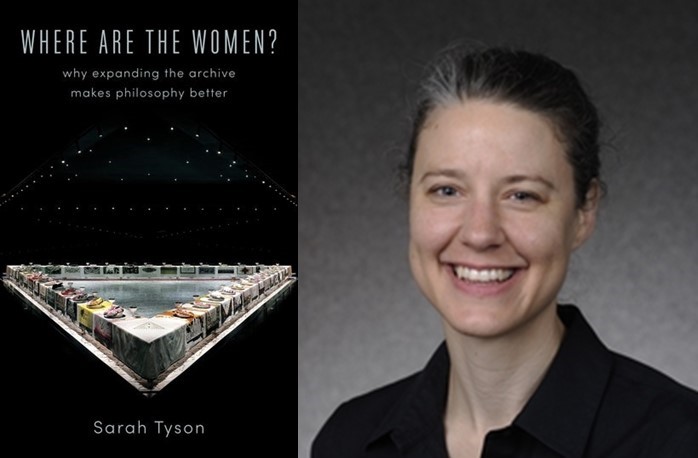Interview with H. H. Shugart, author of Foundations of the Earth
“Science is not likely to produce an ethical basis for proper conduct in cases in which strangers in distant locations are damaged by an individual’s actions involving spending resources, extirpating species, or polluting air and ocean. Help in these matters hopefully can and will come from wise religious thinkers.”—H. H. Shugart
The following is an interview with H. H. Shugart, author of Foundations of the Earth: Global Ecological Change and the Book of Job:
Question: Science and religion are often seen as antagonistic and while you are not interested in “reconciling” the two, you have brought them together in Foundations of the Earth. How can science learn from the Book of Job, and religion more generally, in its approach to understanding some of the issues you consider in your book?
H. H.Shugart: Perhaps it’s best to answer from the specific case to the more general. The Whirlwind Questions in Job 38 to 41 begin with God’s challenge, “Then the Lord answered Job out of the whirlwind: ‘Who is this that darkens counsel by words without knowledge? Gird up your loins like a man, I will question you, and you shall declare to me.’” Many of following questions, asked by God to a man, are remarkably current—How did the cosmos form? Where did the oceans come from? What happens to the light that falls upon the Earth? What controls the boundary between ocean and land? What are the consequences of the changes we made to the land through domesticated animals (and eventually machines)? … Today, these whirlwind questions are compelled by scientific observations that we are changing our planet through our actions. It is rewarding to think that some of the questions that I see as immediately important as a scientist have such deep antiquity. They reach back two and one-half millennia to the Babylonian captivity of the people of Judea and likely even deeper in time.
Religion, particularly ethics, occupies a domain that extends from knowledge of how the planet functions to the essential human issue, “If our actions are altering Earth with potential risk to the survival of our species, how can we stop ourselves?” Science is not likely to produce an ethical basis for proper conduct in cases in which strangers in distant locations are damaged by an individual’s actions involving spending resources, extirpating species, or polluting air and ocean. Help in these matters hopefully can and will come from wise religious thinkers.
Q: How can a religious understanding of the “foundations of the earth,” and the environment be deepened by the scientific approach?
HHS: The Rabbi Shlomo Itzhaki or “Rashi” (France 1040-1105) distinguished what a biblical text “says” from what it “means” in his Talmudic commentaries. Rashi was a remarkable scholar and his medieval biblical insights transcend history to be read, considered and studied today. His exemplary search for meaning and the consequently deeper appreciation of religious texts is central in many religious studies. I hope that Foundations of the Earth can provide a more profound appreciation of just how powerful the questions from the whirlwind really are from a scientific viewpoint. These questions are not merely clever riddles or tricky puzzles. They challenge us to appreciate Earth from multiple scales ranging from the greatness of the Oceans to the details of migrations of tiny birds. The whirlwind questions identify complete knowledge of Earth systems as the provenance of the Divine. One can pursue these questions but never completely understand them at their fullest depth. Such pursuit of always deepening questions also is the procedural manifesto of the scientific approach.
Q: How do both the “Whirlwind Speech” and recent environmental thinking move us away from seeing humans as masters of nature and more toward understanding humans as in nature?
HHS: The Whirlwind questions and recent thinking about the environment share the view that we lack and need better knowledge of the Earth and its systems. The wisdom to use this knowledge to understand our role in nature is a common thread in both.
From the environmental point-of-view, our modern stewardship of the Earth would seem a substantial disaster. Species are being lost at alarming rates. Local-scale environmental problems involving pollution, erosion and ecosystem misuse are legion. Global systems, such as the oceans and the atmosphere, due to our profligate use of the planet’s resources, are displaying measurable change with potentially dark consequences. If we are the masters who manage the Earth, we aren’t doing a bang-up job of it.
In the Whirlwind Speech, God’s questions are edgy with comments to Job of, “ … —surely you know!”; “Declare, if you know all this,”; “Have you commanded the morning since your days began, …” etc. It is pointed out that it rains in the desert were there are no people to benefit from the water. Through the text, animals laugh at people, ignore them, or conduct their lives independent of people’s actions. The Behemoth, a gigantic semiaquatic creature, is the “first of the great acts of God” and created before man. The Leviathan is a great fire-spitting sea-dragon that thoroughly intimidates humankind. In toto, the interrogation from the whirlwind substantially deflates the notion that the world was created for the mastery of humans.
Q: In what ways can the “Whirlwind Speech” and the Book of Job be seen as “green creation story”?
HHS: The Whirlwind speech is a green creation story at several levels. Early in the account (Job 38), major Earth systems are created and Job is asked if he appreciates their wonderfulness. I particularly like the account of the creation of the ocean in Job 38:8-11: “Or who shut in the sea with doors when it burst out from the womb? — when I made the clouds its garment, and thick darkness its swaddling band, and prescribed bounds for it, and set bars and doors, and said, Thus far shall you come, and no farther, and here shall your proud waves be stopped”? The creation of the Ocean is birth with God as a midwife. The infant Ocean is wrapped with clouds and its playpen is designated. Later, the Whirlwind questions involve animals, the intricacies of their life cycles, and the details of their interaction with their environment. Some animals are born to be wild and exist despite their direct value or lack thereof to humans. The account is woven from environmental and ecological topics: Earth system science, ecosystem ecology, animal behavior, animal physiology.
Q: Foundations of the Earth offers an ambitious understanding of the interconnectedness of the planet. In what ways have we failed to appreciate this holistic quality of our environment and what have been the consequences?
HHS: In retrospect, the Whirlwind questions focus on the important interactions for example cases and also allow deeper speculation on the threads of interactions radiating from a particular case. The questions form a remarkable framework for thinking about planetary interconnections because they compartmentalize interactions in very wise ways. The “everything is connected to everything” mantra is a pleasant thought, but really misses an essential point in understanding nature. The Francis Thompson quotation that “Thou canst not stir a flower / Without troubling of a star,” may be true, but beyond poetics, the effects of stirring flowers on stars is miniscule. Interconnections are best understood in an appropriate temporal and spatial context.
The Whirlwind questions lead one to think about what factors might influence the answer. The question sets the scale of the components of an answer. For example, interconnections involving domestication of wild animals omit astronomical considerations and emphasize the connections among animal behavior and ecological factors. Animal domestication results in the landscape alteration and evokes environmental responses involving local climate. Increase the scale of such landscape change and the scale of the climate change could also increase.
Q: Toward the end of your book you address geo-engineering. What do you make of these attempts by science to alter our environment in this way?
HHS: I find the notion of engineering the planet to be very worrisome. The operating premise, “Given we are changing the planet by accident, just think what we could do if we really put our mind to it,” is far from reassuring. It seems possible that humanity could engage in altering the Earth’s climate by several means and that some of these could be economically feasible. Nevertheless, there is the issue on the reversibility of these actions should things go poorly. The issues involve very large ethical and political complexities.
For example, if we are to play with planet’s balance of heat, the question of who gets to set the Earth’s thermostat is not politically trivial. To say that there will be winners and a loser, which is a likely outcome, may not please the losers. If we do engineer intentional changes of planetary function, the losers are likely to be the less powerful, less advantaged nations—a global ethical problem. Some of the possible modes of cooling as a remedy to global warming appear cost effective enough that a country or large corporation to practice bandit geo-engineering on their own towards their own goals. We need to know a lot more about these issues, before we launch a program of global engineering.



